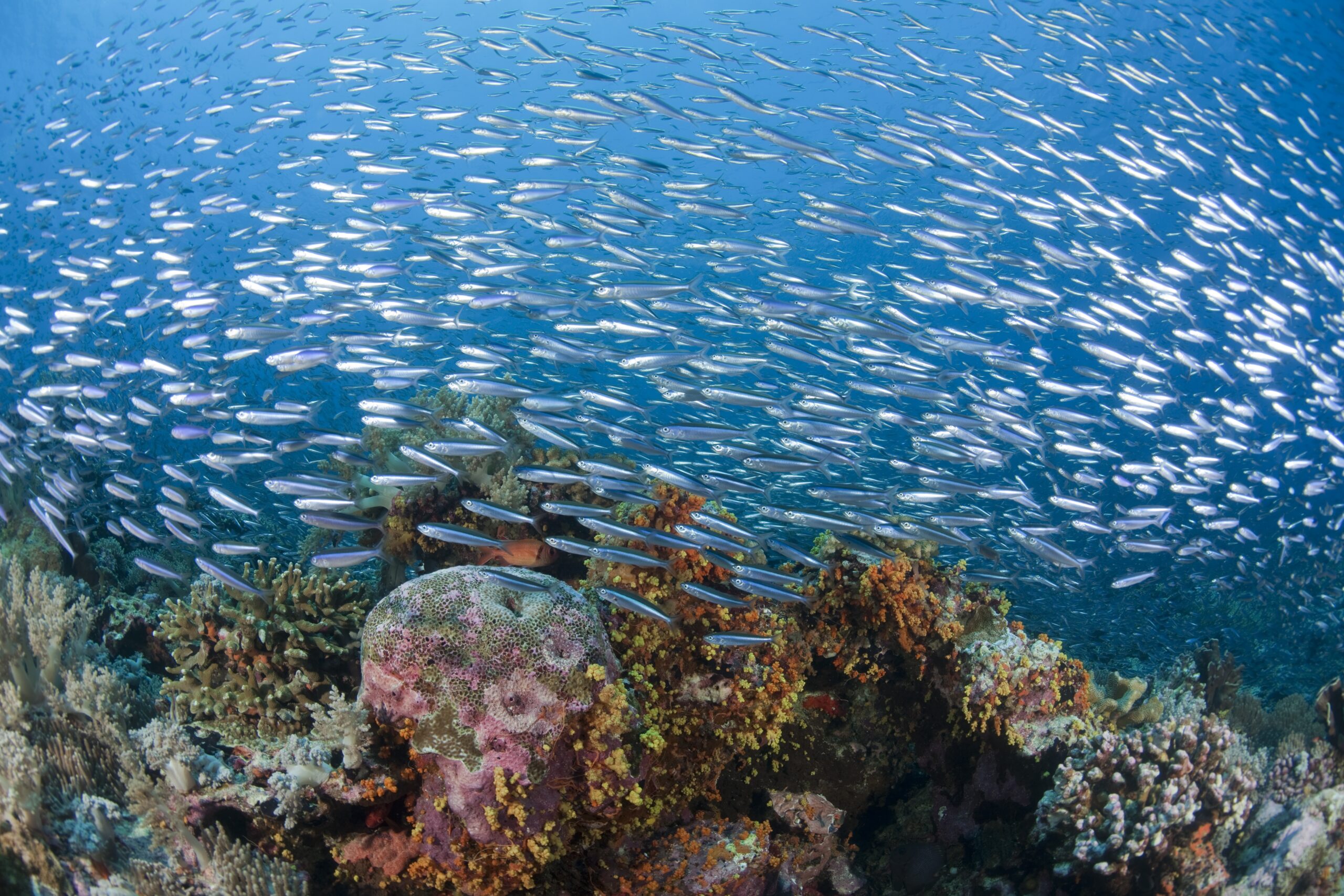The EU IUU Fishing Coalition welcomes the publication of the European Commission’s Ocean Pact, which was unveiled on 5 June ahead of the UN Ocean Conference in Nice. However, its success will depend entirely on how urgently and effectively its commitments are implemented. In particular, it is crucial to address some key and long-standing structural enablers of Illegal, Unreported and Unregulated (IUU) fishing, such as the persistent weak implementation of existing rules, flags of convenience and the lack of transparency in vessel ownership. The EU must ensure that products tainted with IUU fishing are efficiently blocked from entering the EU market, and a level playing field for law-abiding fishers through tightening import controls and reinforcing the implementation of the carding system.
Unscrupulous operators routinely exploit opaque registration systems and flag-hopping tactics to avoid scrutiny, undermine conservation efforts, and externalise risks onto developing coastal States. The EU IUU Fishing Coalition, therefore particularly welcomes the Pact’s explicit commitment to:
- Combat flags of convenience, recognising their role in enabling IUU fishing and eroding maritime security.
- Ensure transparency in fishing vessel ownership, a prerequisite for traceability, accountability, and effective enforcement of international fisheries rules.
The Coalition is encouraged to see the emphasis in the Ocean Pact on the importance of ownership transparency to effectively fight IUU fishing. Since full transparency in vessel ownership extends also to exposing who the true beneficiaries of crimes at sea are, we expect the European Commission to clearly mandate EU Member States to ensure the disclosure of beneficial ownership (BO) data. Full transparency in vessel ownership is required to identify and bring to justice the ultimate beneficiaries of illegal fishing activities. Complex ownership structures often shield those profiting from IUU fishing and hinder enforcement. This is why the Coalition insists that the EU:
- Ensure beneficial ownership (BO) data is collected and disclosed by Member States, and recorded in relevant EU databases (i.e. the Union Fleet Register and the database of fishing authorisations created under the SMEFF Regulation);
- Ensure EU nationals (citizens and companies) report any legal, beneficial, or financial interests in fishing vessels flagged to non-EU countries, and that this information is disclosed, in centralised databases, at least at the national level;
- Cooperate with non-EU countries to identify national offenders;
- Require Sustainable Fisheries Partnership Agreement (SFPA) countries to collect and disclose BO data of vessels operating in their waters (national and foreign-flagged);
- Promote BO transparency through fora such as the FAO, the IUU Action Alliance, RFMOs and others.
The Coalition also welcomes the Commission’s reaffirmation of its zero-tolerance approach to IUU fishing based on its pioneering dialogue and carding scheme, and through a strengthened enforcement of the EU catch certification scheme and its upcoming mandatory digitalisation (IT CATCH) by January 2026. These steps will require EU Member States to reinforce and harmonise their import controls, ensuring that only legally sourced fishery products enter the EU market. With the EU as one of the largest global markets for seafood, it is crucial that the IT CATCH is complemented by a rigorous and effectively implemented EU import control system. The Coalition, EU advisory councils and the European Court of Auditors have repeatedly highlighted the lack of implementation of import control measures by some Member States. It is therefore essential that the Commission urgently hold accountable Member States that fail to comply, in parallel to working on IT CATCH.
Beyond this, the Coalition recognises the Pact’s value in maintaining IUU fishing high on the EU’s ocean agenda. The section on international ocean governance and reinforced ocean diplomacy contains a number of important priorities long supported by our Coalition, including:
- Committing to a new strategic approach to the EU’s fisheries external action;
- Strengthening the role of Regional Fisheries Management Organisations (RFMOs) to uphold high standards in fisheries management and transparency through vessel monitoring systems, vessel information (e.g. IMO numbers and beneficial ownership), high seas boarding and inspection schemes, catch documentation schemes.
- Advocating for the full ratification and implementation of international instruments such as the WTO Fisheries Subsidies Agreement and the relevant ILO and IMO instruments on the welfare and safety of seafarers and fishers;
- Proposing a new generation of Sustainable Fisheries Partnership Agreements (SFPAs) which we believe are in urgent need of reform to improve transparency of fishing activities and use and impact of sectoral support funds, as well as stakeholder participation, and to level the playing field so that all fishing vessels operate under the same rules (see the EU IUU Fishing Coalition’s proposed blueprint for a new generation of SFPAs);
- Enhancing the sustainability and traceability of imported fisheries and aquaculture products.
In this context, we believe that the current EU legal framework (incl. the Common Fisheries Policy; the EU IUU Fishing Regulation and the EU Fisheries Control Regulation) is fit for purpose, and that efforts should focus on improving its implementation.
The EU IUU Fishing Coalition stands ready to support the implementation of the Ocean Pact—but words must now become action. We call on the Commission and Member States to:
- Urgently hold accountable Member States that fail to comply with import control measures in parallel to working on the roll-out of IT CATCH. Ensure that robust and harmonised import controls are in place across the EU, with clear enforcement guidance and minimum inspection benchmarks.
- Ensure a new generation of SFPAs during this Commission mandate that include mandatory BO disclosure, transparent use of sectoral support, and inclusive stakeholder participation;
- Mandate BO transparency for all EU-flagged and EU-owned foreign vessels, without delay;
- Reinforce the EU carding scheme by ensuring consistent, transparent and timely enforcement supported by adequate allocation of human resources.
The Ocean Pact can only succeed if its commitments are anchored in enforceable, measurable, and time-bound. We stand ready to work with the Commission, Parliament, and Member States to ensure that outcome.

